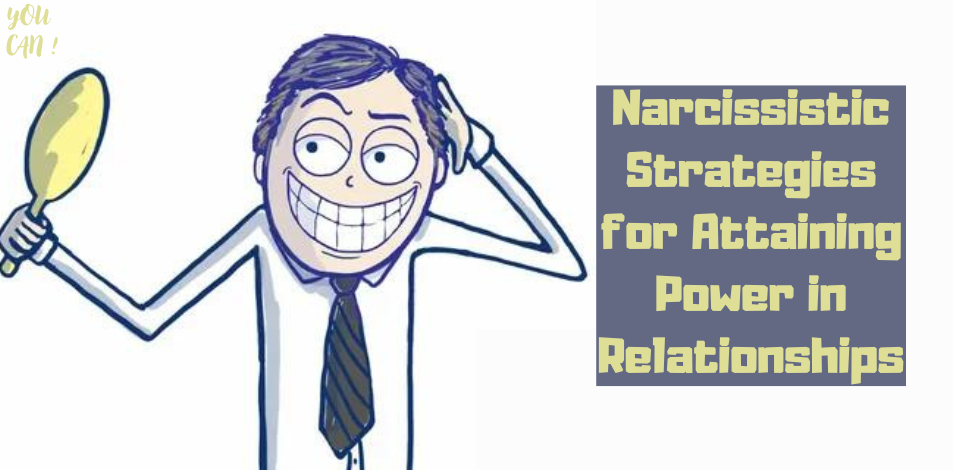
Have you ever felt like you lacked power in a romantic relationship? Do you often feel this way in your romantic relationships? If so, you may have a tendency to fall in love with people with narcissistic tendencies. But another possibility is that your perceived lack of power is a reflection of your own narcissistic tendencies.
That’s one implication of a new study published in the January 2020 issue of the Journal of Social and Personal Relationships . The study, conducted by Jennifer K. Frabel and colleagues, examined the relationship between narcissism and perceptions of power in romantic relationships.
Previous studies have shown that narcissists tend to behave in ways that are harmful to their romantic partners and are likely, or guaranteed, to cause problems for the relationship. For example, narcissists are more likely to
- have a need to control their partner.
- play mind games.
- report a lack of commitment to their partner.
- make their partner jealous.
devalue their partner.
cheat on their partner. - be overtly hostile toward their partner.
He suddenly abandons his current relationship for a new one.
But which of these disturbing behaviors narcissists tend to engage in depends in part on which subtype they belong to. Vulnerable narcissists, who are introverted, have low self-esteem, and high levels of neuroticism, are less likely to engage in overt hostility than grandiose narcissists, who are extroverted, have high self-esteem, and low levels of neuroticism.
But even if we limit ourselves to grandiose narcissists, the types of disruptive behaviors in relationships they tend to engage in depend on the subtype of grandiose narcissism. According to an influential model of grandiose narcissism (the NARC model), grandiose narcissists use two strategies to maintain or massage their grandiose self-image.
One strategy grandiose narcissists use is narcissistic admiration. This strategy helps narcissists maintain their grandiose sense of self by engaging in behaviors that make others admire them. For example, they may brag about their accomplishments or compare themselves favorably to others, using charm or flattery to avoid alienating people.
Related : Dealing with Narcissists: Two Tips from Shakespeare
Another strategy grandiose narcissists use to boost their ego is narcissistic competition. This strategy helps them maintain their inflated sense of self by engaging in self-defense and hostility to protect their self-image against potential threats. For example, they may try to make their critics seem untrustworthy.
Although grandiose narcissists can deploy both strategies to equal extent, most rely on one strategy to a much greater degree than the other. Narcissists who rely predominantly on the narcissistic admiration strategy gain their ego boost through charm, flattery, or other subtle maneuvers. Narcissists who rely on the narcissistic rivalry strategy protect their inflated self-image by engaging in hostility, aggression, and interpersonal conflict.
In their study, Frabel and colleagues (2020) first looked at whether narcissistic admiration and narcissistic rivalry strategies were related to how powerful narcissists were in their romantic relationships. Based on previous findings, they hypothesized that narcissists who relied on narcissistic admiration strategies would perceive themselves as having the most power in their relationships, while narcissists who relied on narcissistic rivalry would perceive themselves as not having enough power in their relationships.
The results confirmed that narcissists who relied on narcissistic admiration perceived themselves as having the most power in their relationships. Surprisingly, however, the researchers found no statistically significant association between narcissistic rivalry and perceptions of power. They argue that one reason for this may be that narcissists who relied on narcissistic rivalry differed more in whether they saw themselves as having the most power in their romantic relationships or not having enough power.
Frabel and colleagues then examined the relationship between narcissists’ perceptions of power and their perceptions of the effectiveness of their romantic relationships. They hypothesized that individuals who rely on narcissistic admiration would view their relationships as more effective the more power they believed they had, while individuals who rely on narcissistic rivalry would view their relationships as less effective the lower the level of power they believed they had.
Here, the results confirmed their hypothesis about narcissists who rely on narcissistic rivalry. They found that narcissists experience more difficulties in their relationships the lower the level of power they believed they had.
One explanation for these findings is that perceiving lower levels of power in a romantic relationship activates aggressive self-defense strategies, which in turn are a surefire way to cause relationship problems. Another explanation is that narcissists who rely on narcissistic rivalry view the low levels of power they perceive in their romantic relationship as unfair, leading them to view their relationship as dysfunctional.
Vrabel and colleagues’ study also sheds light on the behaviors that different subtypes of grandiose narcissism are more likely to engage in. Both subtypes have a high need for power over their partner and tend to play mind games. However, grandiose narcissists who rely on narcissistic rivalry are more likely to engage in overtly hostile behaviors such as making their partners jealous, belittling them, or displaying excessive aggression toward them. In contrast, grandiose narcissists who rely on narcissistic admiration are more likely to report being uncommitted to their partner, cheating on them, or leaving them abruptly.




